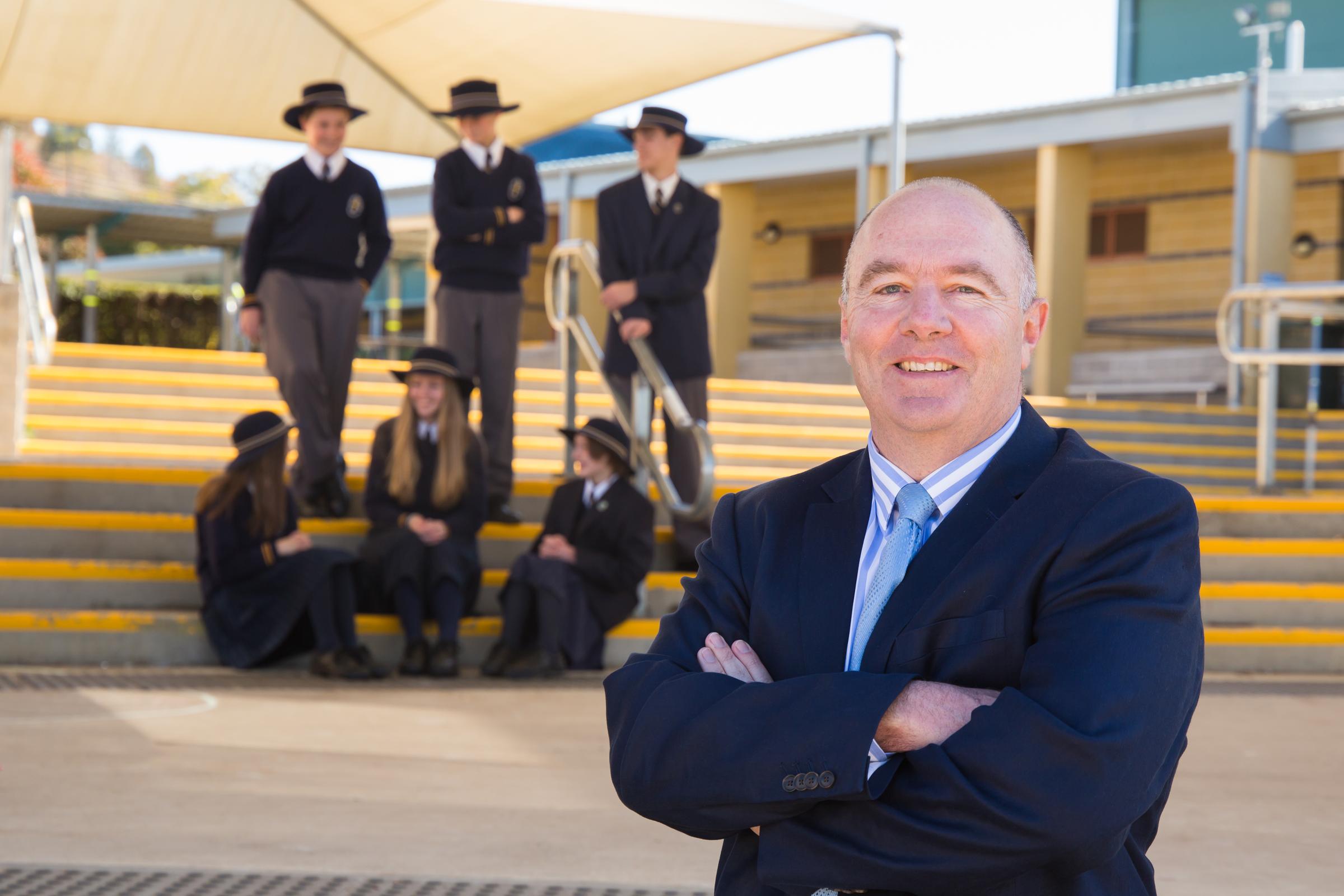Assistant Principal - Pastoral Care

Finding Happiness
The discourse surrounding the recent Federal election provoked me to think about our contemporary society. Both sides of politics espoused the virtues of their policies and how these would deliver better outcomes for Australian society. Cost of living, in particular, was at the forefront of the campaign. The creating, securing and protecting of wealth would seem to be the main priority for politicians and their constituents.
And it is without doubt that materially, we are much better off than say 50 years ago. The household has three times more buying power, homes are much larger, we have more, newer and safer cars, abundant clothing. Medical science has significantly reduced infant mortality, infectious diseases have been brought under control, famine is something from a distant past. We have more education, more entertainment, more women’s rights, less racism, less pollution, fewer wars, more information and readier access to it. And so we should be much happier shouldn’t we?
Paradoxically, the answer seems to be no. Depression is now 10 times more common than it was 50 years ago. In the past the first signs of depression were usually about the ages of 30. Now it is below 15. The most recent Australian data reports deaths due to suicide in 2017 at 3,128, this equates to more than eight deaths by suicide in Australia each day. Deaths by suicide in Australia occur among males at a rate three times greater than that for females. For every death by suicide, it is estimated that as many as 30 people attempt to end their lives, that is approximately 65,300 suicide attempts each year. Alarming statistics that clearly indicate we have significant problems despite our material wealth.
Last week I had the good fortune of attending the Debutante Ball practice where the young men and women were rehearsing under the watchful eyes of a group of wonderful ladies who had dedicated their time, expertise and efforts to maintaining this 125-year tradition. Leading the band was Shirley Chandler who I learned has been involved with the ball for 61 years and her mother before her. A remarkable accomplishment and example of community service. And it was beautiful to watch the young people respond to her guidance as they stepped through their paces trying to emulate the grace, poise and deportment of a bygone era.
In observing Shirley, you begin to gain an insight as to why her generation knew little of depression. A good deal of contemporary research indicates that when we help others we tend to be happier and live more fulfilling lives.
Professor Stephen Post, who specialises in bioethics and philosophy, says there is a “profound connection between giving, altruism and happiness.” One study showed that executives who gave their bonuses away were happier than those who kept the money. Another study showed that students who were given $20 and spent it on someone who needed it rather themselves had “higher happiness ratings”. Alcoholics who followed the 12th step of the AA program of helping other alcoholics were more likely to stay sober. Depression amongst sufferers of multiple sclerosis declined when sufferers made compassion phone calls to other sufferers of the disease. The consistent conclusion from these diverse studies is that giving to others can make us happier.
Recently, a group of our Year 10 students attended the Disability Sports Inclusion day to help with the running of the event. An incredibly confronting, challenging but also rewarding experience for our students. One student said that she really enjoyed the day even though it was at times sad. The students were: Holly Bynge, Caitlyn Walton, Macy Gillies, Nicholas O'Connor, Nathaniel Thrift, Phoebe Porter, Sienna O'Mally, Joe Mitchell, Jack Munro, Abbegale Ryan, Georgia Horniman and Joseph Vella. As a College community we endeavour to give students opportunities to give to others. Our Year 12 students have done a wonderful job raising money for Caritas within the student community.
Giving young people the opportunity to give of themselves may be one of the best antidotes to some of the more insidious malaises that afflict our society today. Happiness comes when we are engaged and use our abilities to serve something ‘bigger’ than ourselves. Interestingly, one of the largest groups to opt out of voting in the current election were young people, perhaps for politicians there is a message for them about what young people need to hear and what government should be focused on in the 21st century. For all of our sakes, let’s hope they are listening.
Mr Mick Larkin - Assistant Principal - Pastoral Care
